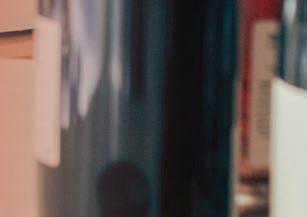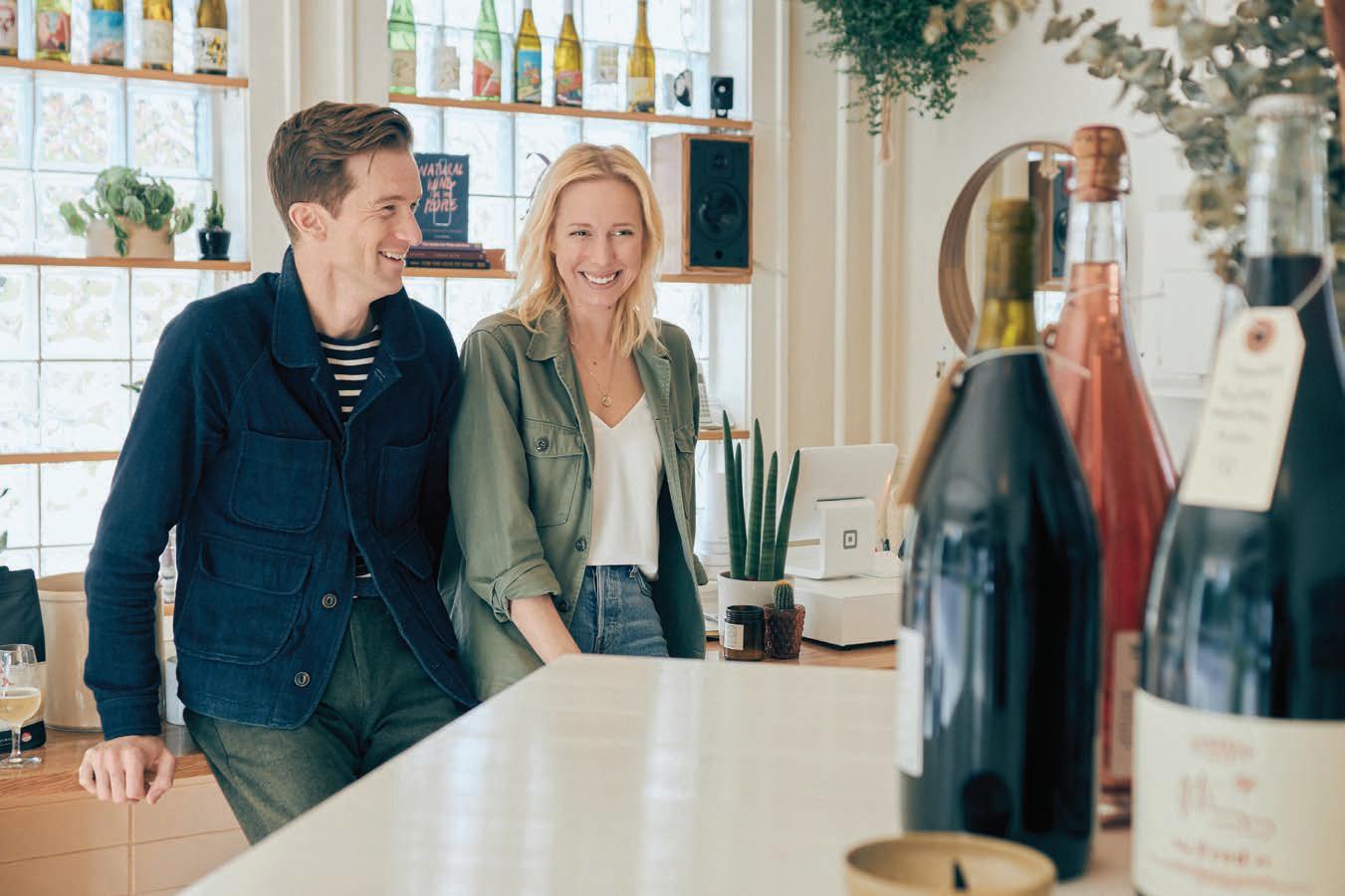
3 minute read
For the True Nature of Wine Try Natural Wine



BY GAETANO MARANGELLI
Brad and Allie Kruse at Nonfiction Natural Wines.
You’re in the sunshine of an April morning in Athens. You’re in the amphitheater of a sanctuary on the southwest slope of the Acropolis. You’re at the Great Dionysia, the city’s festival of Dionysus, the god of wine. It’s 405 BCE.
Around you are thousands of people from Athens and the cities of the Greek islands, the Black Sea, Asia Minor and the South of Italy. In front of you is a stage, where performers are about to engage you in an act of worship to the god of wine. The ceremony you’re about to enjoy is a play. The premier of one of the greatest plays by one of the greatest playwrights of your age or any—The Bacchae by Euripides, a story set thousands of years ago about the true nature of wine.
Photo courtesy of Nonfiction.
Society has been cultivating grapes, fermenting their juice, and drinking its alcohol for 8,000 years. But the wine we drink today is a new kind of wine: Wine made from grapes using herbicides, pesticides, and machinery; Wine processed with chemical additives, like products in a factory; Wine metamorphosed by the demands of commerce and the capacity of industry; Wine which has little to say to its 8,000 years of ancestry.
GRAPES, LOVE AND TIME
But if Dionysus were to appear in the city of Milwaukee today, the god of wine could take refuge with Brad and Allie Kruse at Nonfiction Natural Wines, a temple of wine and its true nature. Brad and Allie devote their shop to wines classified as natural. But natural describes how all wine was made from the beginning of its history until the middle of the last century. “Natural wine is simply wine made by humans, without the use of synthetic chemicals, and with minimal intervention in the cellar,” explains Brad. “Or as one of our favorite Austrian producers Franz Strohmeier puts it ‘Trauben, Liebe, und Zeit,’ which translates to ‘Grapes, Love, and Time.’”
Natural wine specifies practices of both viticulture and vinification. It’s made from grapes which are cultivated organically or biodynamically and which are
vinified without additives. (Adding small quantities of sulfur as a preservative is practiced by some natural winemakers, eschewed by others.)
The benefits of natural viticulture and vinification are honest wines. These wines are exciting. They’re alive. They speak to you. They tell you about wine’s true nature. And their nature makes you want to listen to them. “They’re almost always more lively,” says Brad, “more expressive, and just a hell of a lot more fun to drink than conventional wines.”
DISCIPLES OF BACCHUS
Like the Dionysus of The Bacchae, Brad and Allie and the wines at Nonfiction can make anybody into one of the wine god’s disciples. “It's been great to encounter so many different types of people that are now embracing natural wines,” says Brad. “Whether they're drawn to it as a more fun and inviting entry point into the wine world, or as longtime wine lover that had to stop drinking conventional wine because of adverse reactions, or someone who just thinks they taste better, hopefully it can create enough demand to affect real change in farming and winemaking techniques, and push wine back to its true roots.”
“Ideally, in the not-too-distant future,” Brad concludes, “natural wine can go back to just being called wine and the big corporations can worry about what to call whatever it is they're making.”
And all of us can go back to enjoying the true nature of wine.
Nonfiction Natural Wines (www.nonfictionwine.com) is located at 800 E. Potter Avenue. The shop’s hours are Tuesday through Saturday, 12-7 p.m. and Sunday, 12-5 p.m.
Gaetano Marangelli is a sommelier and playwright. He was the managing director of a wine import and distribution company in New Yorkand beverage director for restaurants and retailers in New York and Chicago before moving to Wauwatosa.













